
James Briscoe
The Francis Crick Institute
UK
EMBO | EMBL Symposium
EMBO and EMBL are committed to sharing research advances and sustaining scientific interaction throughout the coronavirus pandemic. We are delighted to announce that the symposium is going virtual and invite you to join us online. The virtual symposium includes talks from invited speakers, short talk presenters, digital poster sessions and networking opportunities.
Information about accessing the conference platform (containing the live stream, access to the discussion forum and digital posters) will be sent to registered participants on Monday 15 March.
Morphogenesis, the generation of shape, is a topic of considerable interest in basic research with important implications in biomedicine. Across scales, from subcellular structures to multicellular systems shape is intimately linked with function. While traditional genetic approaches have allowed the identification of key components controlling individual morphogenetic processes, recent advances in synthetic biology are opening the possibility to engineer gene circuits, signal systems, and biomaterials to not only probe morphogenesis but also to re-construct it and direct it.
Synthetic morphogenesis is a novel and exciting field that requires collaboration among traditionally distinct scientific communities, from developmental biologists, to chemists, theoreticians and computational modellers. This symposium will bring together scientists from these different disciplines to discuss the extent to which cells/tissues/organs can be built de novo starting from isolated components.

The Francis Crick Institute
UK
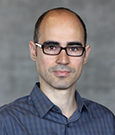
Max Planck Institute of Molecular Cell Biology and Genetics
Germany
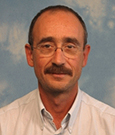
Swiss Federal Institute of Technology Lausanne, Switzerland
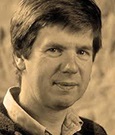
Smithsonian Institution
USA

University of Oxford
UK

Institute of Science and Technology Austria
Austria

Radboud University
The Netherlands
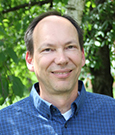
Max Planck Institute for the Physics of Complex Systems
Germany

Boston University
USA
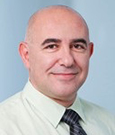
ETH Zürich
Switzerland

University of California, San Francisco
USA
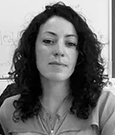
Collège de France
France
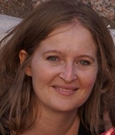
California Institute of Technology
USA
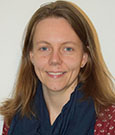
University of Lausanne
Switzerland
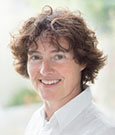
Max Planck Institute of Biochemistry
Germany
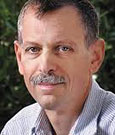
The Rockefeller University
USA
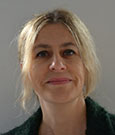
King’s College London
UK
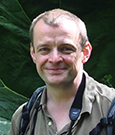
University of Melbourne
Australia
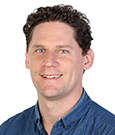
EMBL Heidelberg
Germany
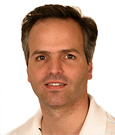
EMBL Heidelberg
Germany
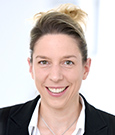
ETH Zürich
Switzerland

Max Planck Institute of Molecular Cell Biology and Genetics
Germany
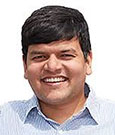
EMBL Barcelona
Spain

EMBL Heidelberg
Germany

EMBL Heidelberg
Germany
Got something to say? Tweet it! #EESmorphoG
The following time is used in the programme below:
To find out the equivalent time zone in your location, enter Berlin, the CET programme time and your city into the Time Zone Converter.
| Time | Speaker |
|---|---|
| 12:45 – 13:00 (CET) | Opening remarks |
| 13:00 – 13:10 (CET) | Meet the editors |
| 13:10 – 15:25 (CET) | Session 1 – Origin and evolution of life Chairs: Justin Crocker and Vikas Trivedi |
| 13:10 – 13:35 (CET) | Evolutionary dynamics of the regulatory genome and expanding developmental opportunities Douglas Erwin – Smithsonian Institution, USA |
| 13:35 – 13:40 (CET) | Transition (setup and switch to the next live talk) |
| 13:40 – 13:55 (CET) | Compositional identity and robustness of compartmentalized self-reproducing catalytic RNAs Sandeep Ameta – National Center for Biological Sciences, India |
| 13:55 – 14:00 (CET) | Transition (setup and switch to the next live talk) |
| 14:00 – 14:25 (CET) | Shape dynamics and division of active droplets and active vesicles Frank Jülicher – Max Planck Institute for the Physics of Complex Systems, Germany |
| 14:25 – 14:40 (CET) | Short break |
| 14:40 – 14:55 (CET) | Reconstitution of ancient innovation transforms tissue architecture and sealing Viola Noeske – Heidelberg University, Germany |
| 14:55 – 15:00 (CET) | Transition (setup and switch to the next live talk) |
| 15:00 – 15:25 (CET) | Conservation and evolutionary flexibility in developmental gene regulatory networks Isabelle Peter – California Institute of Technology, USA |
| 15:25 – 15:30 (CET) | Transition (switch to individual Zoom rooms) |
| 15:30 – 16:00 (CET) | Meet the speakers session 1 in individual Zoom rooms with: Doug Erwin, Frank Jülicher and Isabelle Peter |
| 16:00 – 17:30 (CET) | Break and digital poster session 1 |
| 17:30 – 20:15 (CET) | Session 2 – Engineering life Chairs: Dora Tang and Stefano De Renzis |
| 17:30 – 17:55 (CET) | Cell dynamics of self-organising feather pattern fidelity Marie Manceau – Collège de France, France |
| 17:55 – 18:00 (CET) | Transition (setup and switch to the next live talk) |
| 18:00 – 18:15 (CET) | Programming mechano-chemical coupling between a reaction-diffusion system and active matter Anis Senoussi – Sorbonne University and CNRS, France |
| 18:15 – 18:20 (CET) | Transition (setup and switch to the next live talk) |
| 18:20 – 18:45 (CET) | Bottom-up design of protein self-organization Petra Schwille – Max Planck Institute of Biochemistry, Germany |
| 18:45 – 19:00 (CET) | Short break |
| 19:00 – 19:25 (CET) | Physical biology of synthetic cells Wilhelm Huck – Radboud University, The Netherlands |
| 19:25 – 19:30 (CET) | Transition (setup and switch to the next live talk) |
| 19:30 – 19:45 (CET) | Integrated computational and in vitro systems for design and characterization of established and novel synthetic development systems Leonardo Morsut – University of Southern California, USA |
| 19:45 – 19:50 (CET) | Transition (setup and switch to the next live talk) |
| 19:50 – 20:15 (CET) | Programming self-organizing tissues Wendell Lim – University of California, San Francisco, USA |
| 20:15 – 20:20 (CET) | Transition (switch to individual Zoom rooms) |
| 20:20 – 20:50 (CET) | Meet the speakers session 2 in individual Zoom rooms with: Marie Manceau, Petra Schwille, Wilhelm Huck and Wendell Lim |
| 20:50 – 21:00 (CET) | Short break |
| 21:00 – 22:00 (CET) | Social programme: online speed networking |
| 22:00 (CET) | End of day 1 – Continued access to digital posters, networking and discussion platforms |
| Time | Speaker |
|---|---|
| 14:00 – 16:35 (CET) | Session 3 – Artificial cells/tissues Chairs: Vikas Trivedi and Justin Crocker |
| 14:00 – 14:25 (CET) | Synthetic gene regulatory networks for spatiotemporal pattern formation in populations of E. coli cells Yolanda Schaerli – University of Lausanne, Switzerland |
| 14:25 – 14:30 (CET) | Transition (setup and switch to the next live talk) |
| 14:30 – 14:45 (CET) | Self-organized perfusable capillary network in vitro: Experiment and modeling Takashi Miura – Kyushu University, Japan |
| 14:45 – 14:50 (CET) | Transition (setup and switch to the next live talk) |
| 14:50 – 15:15 (CET) | Cooperativity and the design of gene regulatory circuits Ahmad (Mo) Khalil – Boston University, USA |
| 15:15 – 15:30 (CET) | Short break |
| 15:30 – 15:45 (CET) | Self-organized morphogenesis of an in vitro human neural tube Eyal Karzbrun – University of California, Santa Barbara, USA |
| 15:45 – 15:50 (CET) | Transition (setup and switch to the next live talk) |
| 15:50 – 16:15 (CET) | Optogenetic gene networks recapitulate dynamic cellular signal processing Mustafa Khammash – ETH Zurich, Switzerland |
| 16:15 – 16:20 (CET) | Transition (switch to individual Zoom rooms) |
| 16:20 – 16:50 (CET) | Meet the speakers session 3 in individual Zoom rooms with: Yolanda Schaerli, Ahmad S. Khalil and Mustafa Khammash |
| 16:50 – 18:20 (CET) | Break and digital poster session 2 |
| 18:20 – 20:35 (CET) | Session 4 – Developmental mechanisms Chairs: Vikas Trivedi and Stefano De Renzis |
| 18:20 – 18:45 (CET) | Engineering pancreatic tissue: Cells in time and space Francesca M. Spagnoli – King’s College London, UK |
| 18:45 – 18:50 (CET) | Transition (setup and switch to the next live talk) |
| 18:50 – 19:05 (CET) | Ex utero development of mouse embryos from pre-gastrulation to advanced organogenesis Alejandro Aguilera Castrejon – Weizmann Institute of Science, Israel |
| 19:05 – 19:10 (CET) | Transition (setup and switch to the next live talk) |
| 19:10 – 19:35 (CET) | Talk title to be announced Magdalena Zernicka-Goetz – University of Cambridge, UK |
| 19:35 – 19:50 (CET) | Short break |
| 19:50 – 20:05 (CET) | Tackling the mesoscale of gastrulation movements: Developmental downregulation of cell cortex contractility accounts for the plasticity of migrating mesoderm Francois Fagotto – CRBM, University of Montpellier and CNRS, France; McGill University, Canada |
| 20:05 – 20:10 (CET) | Transition (setup and switch to the next live talk) |
| 20:10 – 20:35 (CET) | Design principles in pattern formation: Robustness and equivalences Michael Stumpf – University of Melbourne, Australia |
| 20:35 – 20:40 (CET) | Transition (switch to individual Zoom rooms) |
| 20:40 – 21:10 (CET) | Meet the speakers session 4 in individual Zoom rooms with: Francesca M. Spagnoli, Magdalena Zernicka-Goetz and Michael Stumpf |
| 21:10 – 21:20 (CET) | Short break |
| 21:20 – 22:20 (CET) | Social programme: virtual bar mixer, open with Live Music by Lazy Fur |
| 22:20 (CET) | End of day 2 – Continued access to digital posters, networking and discussion platforms |
| Time | Speaker |
|---|---|
| 12:45 – 13:00 (CET) | Horizon Europe – European Innovation Council (EIC) Pathfinder Barbara Gerratana – European Innovation Council Pilot, Research Executive Agency |
| 13:00 – 15:15 (CET) | Session 5 – Patterning and self-organization Chairs: Stefano De Renzis and Dagmar Iber |
| 13:00 – 13:25 (CET) | The cellular and molecular logic of spinal cord development James Briscoe – The Francis Crick Institute, UK |
| 13:25 – 13:30 (CET) | Transition (setup and switch to the next live talk) |
| 13:30 – 13:45 (CET) | Schemes for programmable pattern formation in compartmentalised systems with local signalling Ulrich Gerland – Technical University of Munich, Germany |
| 13:45 – 13:50 (CET) | Transition (setup and switch to the next live talk) |
| 13:50 – 14:15 (CET) | Artificial embryos to study long-range gene regulation Denis Duboule – Swiss Federal Institute of Technology Lausanne, Switzerland |
| 14:15 – 14:30 (CET) | Short break |
| 14:30 – 14:45 (CET) | Patterning and growth control in vivo by an engineered GFP gradient Kristina S Stapornwongkul – The Francis Crick Institute, UK |
| 14:45 – 14:50 (CET) | Transition (setup and switch to the next live talk) |
| 14:50 – 15:15 (CET) | Self assembly of multi-lineage human stem cell systems Eric D. Siggia – The Rockefeller University, USA |
| 15:15 – 15:20 (CET) | Transition (switch to individual Zoom rooms) |
| 15:20 – 15:50 (CET) | Meet the speakers session 5 in individual Zoom rooms with: James Briscoe, Denis Duboule and Eric D. Siggia |
| 15:50 – 17:20 (CET) | Break and digital poster session 3 |
| 17:20 – 20:15 (CET) | Session 6 – Physics of life Chairs: Dagmar Iber and Dora Tang |
| 17:20 – 17:45 (CET) | Talk title to be announced Jan Brugués – Max Planck Institute of Molecular Cell Biology and Genetics, Germany |
| 17:45 – 17:50 (CET) | Transition (setup and switch to the next live talk) |
| 17:50 – 18:05 (CET) | Understanding the tubologenesis of bile canaliculi one cell at a time Virgile Viasnoff – National University of Singapore, Singapore |
| 18:05 – 18:10 (CET) | Transition (setup and switch to the next live talk) |
| 18:10 – 18:25 (CET) | Arrested coalescence of multicellular aggregates David Oriola – EMBL Barcelona, Spain |
| 18:25 – 18:30 (CET) | Transition (setup and switch to the next live talk) |
| 18:30 – 18:55 (CET) | Rigidity percolation as a structural basis of embryonic tissue phase transitions Edouard Hannezo – Institute of Science and Technology Austria, Austria |
| 18:55 – 19:10 (CET) | Short break |
| 19:10 – 19:25 (CET) | Somite surface tension buffers imprecise segment lengths to ensure increased precision and left-right symmetry Sundar R Naganathan -Swiss Federal Institute of Technology Lausanne, Switzerland |
| 19:25 – 19:30 (CET) | Transition (setup and switch to the next live talk) |
| 19:30 – 19:45 (CET) | Engineering epithelial shape and mechanics from the bottom up Ariadna Marín-Llauradó – Institute for Bioengineering of Catalonia, Spain |
| 19:45 – 19:50 (CET) | Transition (setup and switch to the next live talk) |
| 19:50 – 20:15 (CET) | A field theory of axonal growth and guidance Alain Goriely – University of Oxford, UK |
| 20:15 – 20:25 (CET) | Closing remarks |
| 20:25 – 20:30 (CET) | Transition (switch to individual Zoom rooms) |
| 20:30 – 21:00 (CET) | Meet the speakers session 6 in individual Zoom rooms with: Jan Brugués, Edouard Hannezo and Alain Goriely |
| 21:00 (CET) | End of conference – Continued access to digital posters, networking and discussion platforms for 2 weeks after the conference |
Registration for this event is now closed.
Registration Fees (include access to all of the talks, online group discussions, and help us cover our costs to run the event):
| Academia | 190 Euro |
| PhD Student | 140 Euro |
| Industry | 240 Euro |
| EMBL Staff | Intranet access |
Accredited journalists may be eligible to register for a reduced press rate or in some cases for complimentary registration. Registrants may be required to provide accreditation or equivalent proof of press membership after registration. Please contact Lisa Trinh for more information.
Registration will be on a first-come first-served basis. Your place can only be confirmed after payment of the registration fee.
Types of payments accepted are international bank transfers (only up to 8 weeks before event) and credit card payments.
Only registered participants are eligible to submit an abstract. We only accept online abstract submissions.
After registration you can submit your abstract via a separate link that will be provided in the email confirmation. Alternatively, you can access the link on the confirmation page directly after registering. The same login credentials are used for both processes.
Please note
Title: The title should not exceed 20 words. Only the first word of the title should start with a capital letter and the rest of the title should be in lowercase.
Authors and Affiliations: Please fill in the author’s details as requested in the online form. The compulsory details are: First Name, Last Name, Organisation Name (Affiliation or Company), Country and Email. Mark only one author as the role of First author and please don’t forget to indicate who will be presenting. The order of the authors will be listed as follows: First Author, Co-First Author (alphabetically if multiple), co-author(s) (in the order added by the submitter).
Presentation Types: When submitting your abstract, you can apply for an oral or poster presentation. A selection process will take place with the results announced 2-3 weeks after the abstract submission deadline.
Please check our FAQs pages for further information on how to submit an abstract.
Registration Fee Waivers
All academic and student registrants are invited to apply for a registration fee waiver, provided by the EMBL Advanced Training Centre Corporate Partnership Programme and EMBO. The registration fee waiver covers the registration sum that you have paid to attend the meeting. Conference participants are not required to pre-pay the registration fee to be selected for a fee waiver for a virtual meeting. If you have already paid the registration fee and are awarded a fee waiver, it will be reimbursed after the meeting. Course participants are required to pay the course fee in advance, which will then be reimbursed after the course to the fee waiver recipients.
Childcare Grants
For participants with children, there is the possibility to apply for a childcare grant provided by the EMBL Advanced Training Centre Corporate Partnership Programme, to offset childcare costs incurred by participants or speakers when participating at a virtual event. Eligible costs include fees for a babysitter or childcare facility or travel costs for a care giver. Please note that priority will be given to early stage researchers. A maximum amount of 500 EUR can be awarded per participant selected for the virtual childcare grant. Costs will be reimbursed after the meeting only once a reimbursement form and original receipts have been received. In order to apply for this grant, you must be registered by the abstract submission deadline.
Registration Fee Waivers
You may apply for financial assistance when submitting your abstract for this conference. In your application you will be asked to answer questions regarding your motivation for applying, reasons why your lab cannot fund your attendance and how your attendance will make a difference to your career. Application for financial support will not affect the outcome of your registration application.
Childcare Grants
Participants registered by the abstract deadline will be emailed information about the childcare grants. You should apply for the grant by the deadline specified in the email.
The scientific organisers will select the recipients of registration fee waivers during the abstract selection process. Results will be announced approximately 3 – 4 weeks before the event start date. Selection results do not impact your admission to the meeting. Registration fee waiver selection is based on your current work or study location, your motivation for applying, the reasons for needing financial support and the impact this event will have on your career. Childcare grants are allocated based on career stage, with priority given to early stage researchers.
For further information about financial assistance please refer to the FAQ page.
Please do:
Please don’t:
Additional information can be found in our Code of Conduct.
It is important to stay healthy and move around, especially when you are attending an event virtually. We have put together a few coffee break stretches and yoga videos. You can find these under ‘resources’ on the conference platform.
Please use the Q&A function. It is possible to send a direct message to participants, poster presenters, and speakers within the conference platform.
If you have any other questions, you can go to the Help Desk on the conference platform. Click on ‘more’ on the top menu and click Help Desk.
The programme is planned based on Central European Time (CET) or Central European Summer Time (CEST) unless otherwise stated. As many virtual participants are attending from around the world, we do our best to accommodate as many timezones as possible when creating the programme. Please take your time zone into consideration when planning your attendance.
We are using a virtual event platform for this conference. More information about the platform will be shared ahead of the conference.
Media partners:
Development, a The Company of Biologists journal
Molecular Systems Biology, an EMBO Press journal
Open Biology, a Royal Society journal
Sponsorship Opportunities
We offer a variety of event sponsoring possibilities, with the flexibility to select a set sponsorship package or combine individual sponsorship options to suit your event budget. Discounts are available for companies sponsoring multiple events at EMBL Heidelberg. View other conferences, or contact sponsorship@embl.de for further information.
If you are interested in becoming a media partner of this event, please visit our media partnerships webpage.
Date: 17 - 19 Mar 2021
Location: Virtual
Deadline(s):
Abstract submission: Closed
Closed
Contact: Lisa Trinh